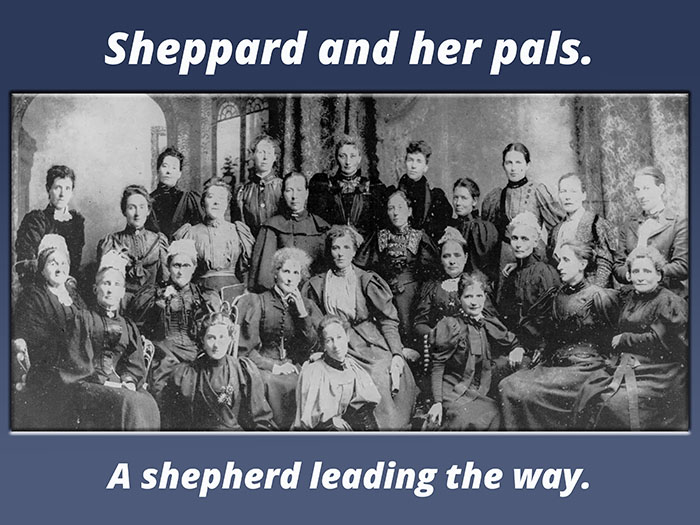Time and again, I grow frustrated — and admittedly, sometimes angry — over the lack of equal rights in the United States and the world. It should be a given. Human rights are common sense. Yet prejudice and discrimination occur daily in this place. Against women, blacks, homosexuals, religious groups, transgender people, and on.
I do not, do not, do not understand this way of thinking. We are all hatched in the same way. We begin with exactly the same amount of stuff. Be it bones, or blood, or the 23 pairs of DNA chromosomes in our little baby bodies. But, like the Sneetches, if we don’t have the star on our bellies, we get the miserable side of the island.
It takes a long time, I suppose. It shouldn’t, but it does. And this date marks the anniversary of one of those progressions. On November 28, 1893 women voted in a national election for the first time in the New Zealand general election. A full 27 years before the United States would wise up.
Yes, good New Zealand was the first place to put men and women squarely on the stage in this area.
In the late nineteenth century, the women’s suffrage movement was widespread throughout Northern Europe, America, and Britain. But the first self-governing country to grant all women the vote was New Zealand.
Holy heck. The next country after New Zealand was Finland in 1907, then part of the Russian Empire. And we know it was 1920 in the good old US before women voted.
The women of New Zealand were persistent, that’s for sure. But. The voting movement held hands with the temperance movement. There was a strong relationship between the two.
Temperance is always such a word for me. When I hear it, I think of “temper, temper.” But that’s not it at all. The Middle English word stems from the Latin temperantia meaning ‘moderation’, from temperare meaning ‘restrain.’
So there it is. The restrain of alcohol. Over in New Zealand in the 1880s, many blamed alcohol for several of their society’s problems. The women and children bore the brunt of this downfall.
The Woman’s Christian Temperance Union (WCTU) decided that only through political rights would women gain any say over the use and abuse of alcohol. The leader? A woman named Kate Sheppard from Christchurch. She became New Zealand’s leading suffragette and really pushed the issues for temperance and the vote.
It came to a head during 1893 when there was a final petition for women’s suffrage. Good for them, it gained nearly a quarter of all adult European women’s signatures.
Then, in September, it passed by 20 votes to 18 after Prime Minister Richard Seddon tried to stop it. But he hurt his own cause. He made two members of parliament so mad by his ranting that they changed their vote and the bill passed.
One hurdle stood in the way. The Governor of New Zealand, Lord Glasgow, still had to sign the bill into law. Suffragettes put in one final effort, and in September 1893, Lord Glasgow signed the bill into law. Big woot for them.
They only had six weeks to enroll voters for the next general election on November 28th. A whopping 84% of women registered and two-thirds later voted for the first time.
Here’s a thing. If you spend ten dollars while you’re there, you will see Kate Sheppard’s portrait is on the New Zealand ten-dollar bill.
And the rest? Canada followed in granting women the vote in 1917, the United Kingdom in 1918, and the United States in 1920. By contrast, Switzerland didn’t grant women full voting rights until 1971, Portugal in 1976, and Liechtenstein in 1984. Unreal.
So. We need the goodness. We get one step closer here and there. But next, it feels like two steps back. For women. For blacks. For homosexuals. But if you are a white Christian male, you’re good to go.
I wonder how much more it will take?
=========
“We don’t need to be good. But let’s try to be fair.”
― Holly Black, The Cruel Prince
=========
“Being good is easy, what is difficult is being just.”
― Victor Hugo
==========
“I looked up fairness in the dictionary and it was not there.”
― William Giraldi
==========
The right, the right. We need the rights.
